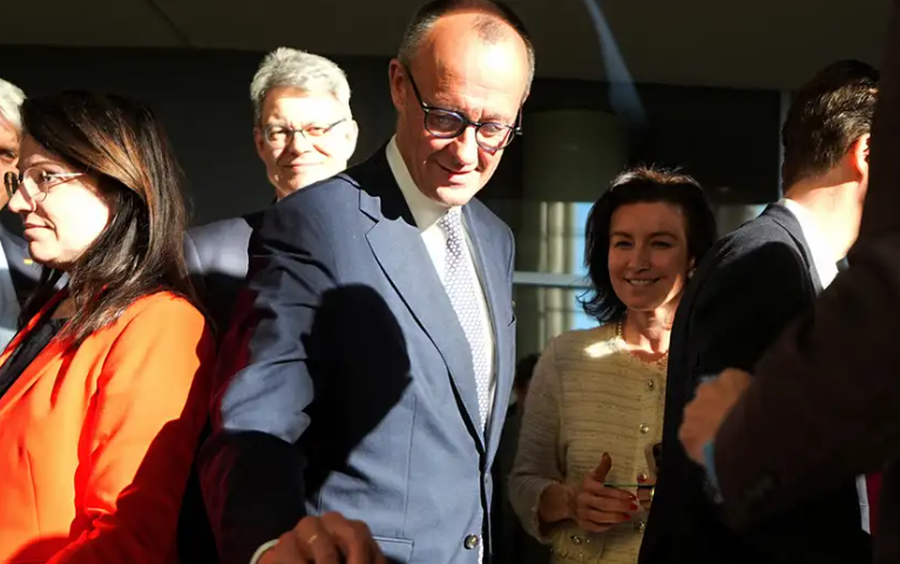
After long debates and heated arguments, the Bundestag finally approved by a two-thirds majority a constitutional amendment that will fundamentally change the way German defense is financed. With this decision, the budget brake will no longer limit military spending. The necessary constitutional changes were voted in favor by 513 members of parliament, while 207 voted against; there were no abstentions.
Part of this historic decision was the approval of a special fund of 500 billion euros for infrastructure and climate investments, which will be extended over the next 12 years. The investments aim to modernize roads, energy systems, but also schools.
Merz: "It is a war against our country that happens every day"
Friedrich Merz, the CDU's candidate for chancellor and the main architect of this package, presented the decision as a necessary step for national and European security, conditioned by Putin's war on Ukraine. "It is also a war against our country that is happening every day, with attacks on our data networks, with the destruction of supply lines, with arson, with contract killings on our country's territory, with spying on barracks and with disinformation campaigns that deceive our society," Merz warned.
Merz insisted that Germany must be prepared for a new era of global challenges. "We now have to rebuild our defense capability almost from scratch, with new strategies, with high-tech weaponry, with automated systems and independent European satellite surveillance, with reliable and plannable contracts that are preferably awarded to European manufacturers," he said.
Pistorius: "This is a new era for Europe and Germany"
In a speech aimed at calming skeptics, German Defense Minister Boris Pistorius (SPD) stressed that the decision was not made to militarize the country, but to keep it safe. The SPD, which could be a partner in the next government, had demanded that infrastructure debt be approved in addition to defense debt. "We are entering a new era for Europe, for Germany, for NATO and for future generations. Today, it is above all about the security of our children and grandchildren. That is why we are proposing a comprehensive financing package. This ensures that our defense capabilities are strengthened without jeopardizing our social cohesion," Pistorius said.
AfD strongly criticizes the legitimacy of the decision
Many MPs, mostly from the Alternative for Germany (AfD) party, tried to stop this decision with urgent applications to the Constitutional Court, claiming that the previous Bundestag was being used to cement the power of the incoming government. The new Bundestag will be constituted next Tuesday, March 25, 2025, and a third of its MPs are from the AfD and The Left. These two parties strongly oppose this package, each for different reasons.
AfD chairman Tino Chrupalla criticized the decision in harsh tones: "The previously elected 20th Bundestag is being used to strengthen the future federal government, because only here they have a majority. Even though most of the new deputies are present today, this process could have been done with them," he said. Chrupalla questioned the legitimacy of the decision. "And we have to ask: Where is Olaf Scholz? He still leads the government according to the Constitution. Isn't this a farce?"
The final step: the Federal Council
After approval in the Bundestag, the legal package must also pass with a two-thirds vote in the Federal Council, where it is expected to be reviewed and put forward for approval next Friday, March 21, 2025./ DW (A2 Televizion)











